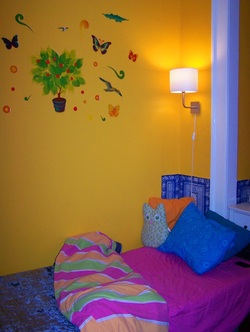
On Realizing You Are NOT Heartless (Because you can hear it pounding)
My first memory of Lisbon is feeling like I might die. The Pensao Royal on Rua do Crucifixo is some six flights up. No elevator. Tony and I, hauling our overstuffed backpacks, tromped the narrow, ascending stairs with slow-witted footsteps, our chests heaving. But the walk is worth it, because the Pensao Royal, run by Paula, a lovely hostess with long, dark brown hair and an enchanting accent, is a miracle in the center of the Chiado district. The room we are housed in is a cheery yellow with butterfly and flower decals on the walls and optimistic pillowcases and small throw pillows in the shape of owls. The room overlooks the Rua do Crucifixo.
My first memory of Lisbon is feeling like I might die. The Pensao Royal on Rua do Crucifixo is some six flights up. No elevator. Tony and I, hauling our overstuffed backpacks, tromped the narrow, ascending stairs with slow-witted footsteps, our chests heaving. But the walk is worth it, because the Pensao Royal, run by Paula, a lovely hostess with long, dark brown hair and an enchanting accent, is a miracle in the center of the Chiado district. The room we are housed in is a cheery yellow with butterfly and flower decals on the walls and optimistic pillowcases and small throw pillows in the shape of owls. The room overlooks the Rua do Crucifixo.
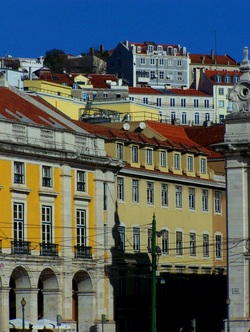
The observer can easily note the colorful facades that make up a large majority of the old structures of Lisboa. Juan, a caretaker of the hotel, tells us that the Portuguese do not tear down the fronts of the old buildings, but rather make improvements behind the original facades. These structures are made from many different materials and have interesting internal configurations. They remind me of people whose faces only age, seldom changing their original structures, but internally make hosts of improvements, changes, or breakdowns. Inside, the stairwells may be made of uncertain number of steps or one may find the doorway to a room that was not expected. A piece of plaster torn away may reveal the most intricate pattern of colorful tile. We are like this. Like us, these buildings have character. Unlike the United States (from the streets of Mountain Brook in Birmingham, Alabama to the pitted, snow-covered roads of Racine, Wisconsin), no two structures look alike. It is Juan that checks us into our rooms. He is tall, willow thin, with a shock of curly, brown hair and kind eyes. He speaks English well, with the peculiar accent common with the Portuguese, Spanish and French. He knows we look tired from our journey (and indeed, we have visited three airports in the United States, plus the airport in Lisbon, all within the span of an extended day (brought on by the six hour difference in time from the beginning of our journey to its end). Our shoulders hurt with the weight of our bags, but our spirits are high. We are looking forward to nearly two weeks of adventure. It is only midday in Lisbon, so we decide to strike out from our hotel through the Praca do Comercio. Its boundary is the harbor. It is pressed toward the sea by the streets of Lower Chiado.
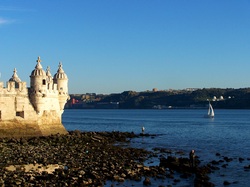
The square is wide, cut through by a busy street that separates the upper part of the square from the lower part and the sea. There are tourists in the Praca do Comercio: some girls, finely dressed, taking pictures of each other near a monument that look like a man in a feathered headdress. Of course, I can't read the Portuguese that explains who the statue is, but he looks like an explorer and a conqueror. Perhaps even a king. Across the street, near the sea, stairs lead down to a dark beach, more rock than sand, the kind of silt one expects from years of tides washing in oil and debris from the traffic of a busy port. But the beach isn't dirty, just dark, but its black rocks make the brown sand seem whiter.
Something about the contrast of the rocks and the shore reminded me of Piedras Blancas in San Simeon, California, a small stretch of beach just outside the Hearst Castle, where sea lions come to lay in the sun. But there were no sea lions here. Merely swarms of gulls, cawing at the visitors, curious of everything. Paula had given us instructions on how to get to the famous Belem Tower, but in the way of overwhelmed travelers, we hardly understood her directions. There was some discussion among us as to whether Paula had said to take the 28 tram or the 28 bus to get to Belem, so after a few minutes, we found ourselves boarding the 28 bus. It was the wrong choice, however. So for the first hour and a half of our trip, we find ourselves circling the city entire. For the 28 bus travels nearly the circumference of Lisboa, along the coastline and through all the major neighborhoods of the city. We could have gotten to Belem, most likely, taking that route, had we only known which stop to get off on. Instead, I'd be lying if I said it wasn't nice to sit down for a while and enjoy the sights of the city and hear Portuguese spoken by native speakers. It was a nice break from walking the city. When the bus ended at its terminus, we had to switch back to the bus going the other direction and finally made it back to the Praca do Comercio, not long before the sun started to wane. From the Praca do Comercio, we wandered the streets of Lower Chiado, checking out buildings and graffiti, entryways and alleyways, getting our bearings. We'd had trouble finding the hotel that afternoon and had tried asking various patrons of that great city. So, we already had some sense of which streets led to the hotel and which led into the city. We traversed up stairways leading to breathtaking views of the harbor, through winding streets where artists and craftsmen made handmade tiles or textiles or sold their paintings on the streets. I bought three canvas paintings from a street artist for ten euros. Two of them I bought for gifts, but one I saved for myself. All around us were the colorful houses and businesses so prevalent in Lisbon.
Walk Through Lisboa or "How They Found Their Way."
Winding through the alleyways found us looking into windows that held anything from antiques to cheeses. The windows displayed the shopkeepers' wares in the most appealing light. The Portuguese know how to decorate, both their dwellings and themselves. I found them to be the most fashionable people I had the opportunity to witness. The Euro is worth quite a bit more than the dollar, so I continued to wonder what kind of businesses these young, stylish people found themselves involved in. What enabled them to be able to spend even weeknights partying in the Bairro Alto and wearing such nice clothes? From Juan, I found out that the young people there live with their parents until they get married. Unlike the American ideal of proving your independence, Portuguese youngsters rely on their parents and families to teach them the ways of the world: to help them afford their food and clothing, to find them satisfactory houses when they marry and to keep up their children's standard of living so they lack nothing. While in America, I would be considered a "loser" since I am unemployed and living at home with my parents, the Portuguese considered me to be smart, living on my parents love and dollar until I obtained some kind of firm footing in the world. It's not actually like that, however, for me at least. I have lived away from home for quite a long time, done several different jobs and obtained some degrees and some publishing cred, so in my case, most people just shrug and say, "Everyone goes home sometime." This is true. But for the benefit of storytelling, I tell Juan whatever will make the best conversation.
During our trek, I had happened upon an Italian restaurant with a beautifully decorated interior. It was too late for lunch and too early for dinner, so I had planned to return. As it happened, though, when we returned to the hotel, Paula provided sausage rolls for our dinner, and my traveling companion was too tired to go out for a meal. So, we decided to rest for a time.
That evening, Tony and I find our way into the Bairro Alto to have a beer at one of the many bars with outside tables. The bar we chose had a band playing in front of it, some traditional music of one of the islands off the coast of Africa, which unfortunately, after a drink or two, now eludes me. A wispy, dark-skinned girl was dancing in front of her bandmates, alternately moving in swaying ecstasy and peddling CDs to the bar's patrons. I am always afraid I am being rather rude to those solicitors, but I do not often buy things off the streets, since once I start, every peddler within a two-mile vicinity will expect to make a sale. When you are traveling Europe on a budget, you have to be discerning. Plus, I had little room left in my carry on and was saving most of my room for goods procured in Morocco, which we would not be in for several days' time. By now, my exhaustion is seeping from my pores, so we decide to call it a night. The night time had become increasingly cold, so we expected a rather miserable rest; however, the blankets on the bed kept us delightfully warm.
During our trek, I had happened upon an Italian restaurant with a beautifully decorated interior. It was too late for lunch and too early for dinner, so I had planned to return. As it happened, though, when we returned to the hotel, Paula provided sausage rolls for our dinner, and my traveling companion was too tired to go out for a meal. So, we decided to rest for a time.
That evening, Tony and I find our way into the Bairro Alto to have a beer at one of the many bars with outside tables. The bar we chose had a band playing in front of it, some traditional music of one of the islands off the coast of Africa, which unfortunately, after a drink or two, now eludes me. A wispy, dark-skinned girl was dancing in front of her bandmates, alternately moving in swaying ecstasy and peddling CDs to the bar's patrons. I am always afraid I am being rather rude to those solicitors, but I do not often buy things off the streets, since once I start, every peddler within a two-mile vicinity will expect to make a sale. When you are traveling Europe on a budget, you have to be discerning. Plus, I had little room left in my carry on and was saving most of my room for goods procured in Morocco, which we would not be in for several days' time. By now, my exhaustion is seeping from my pores, so we decide to call it a night. The night time had become increasingly cold, so we expected a rather miserable rest; however, the blankets on the bed kept us delightfully warm.
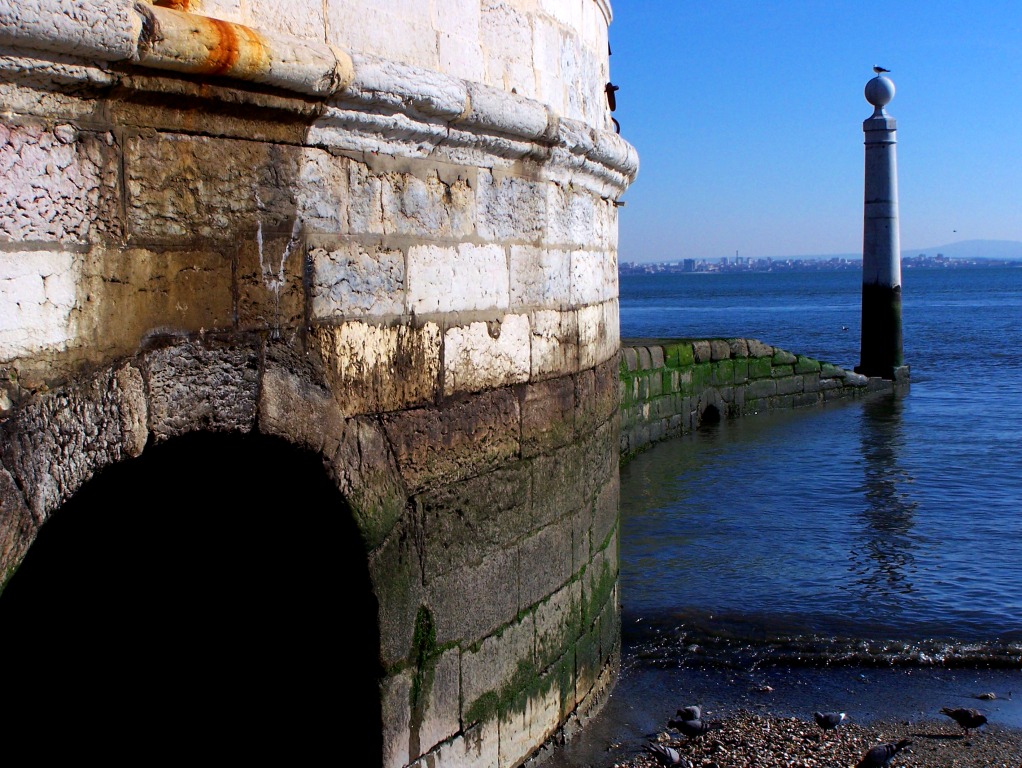
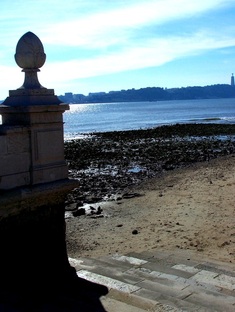
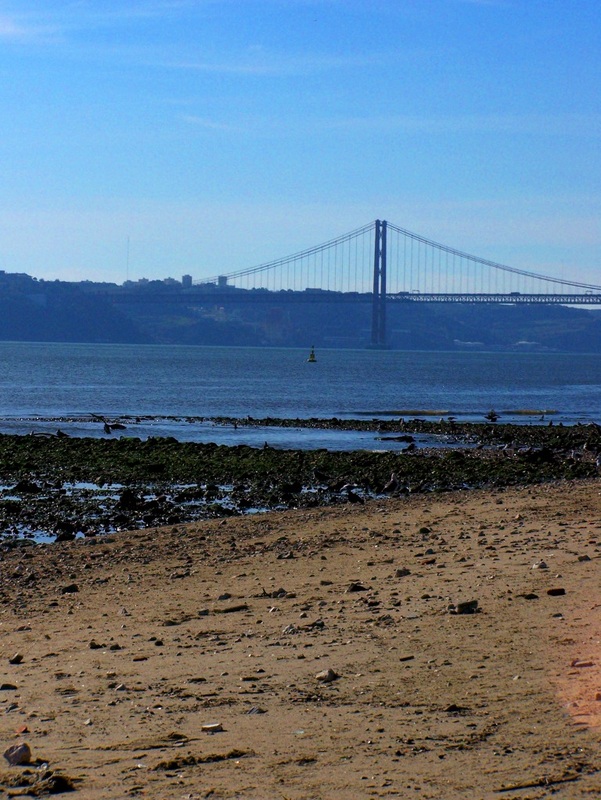
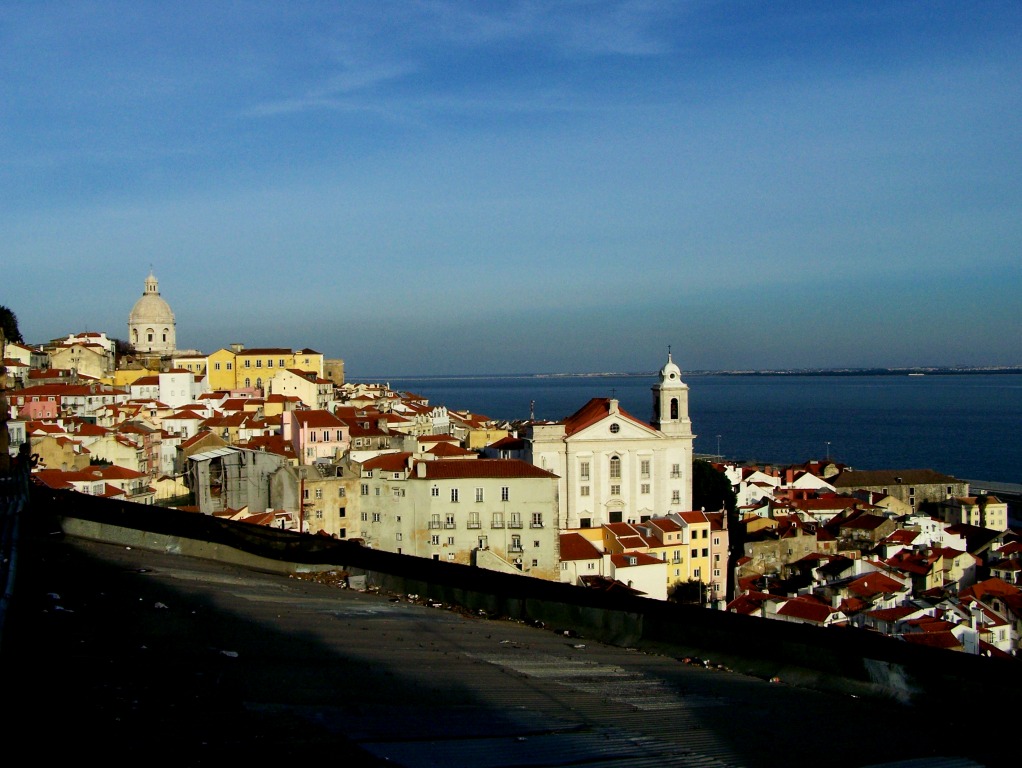
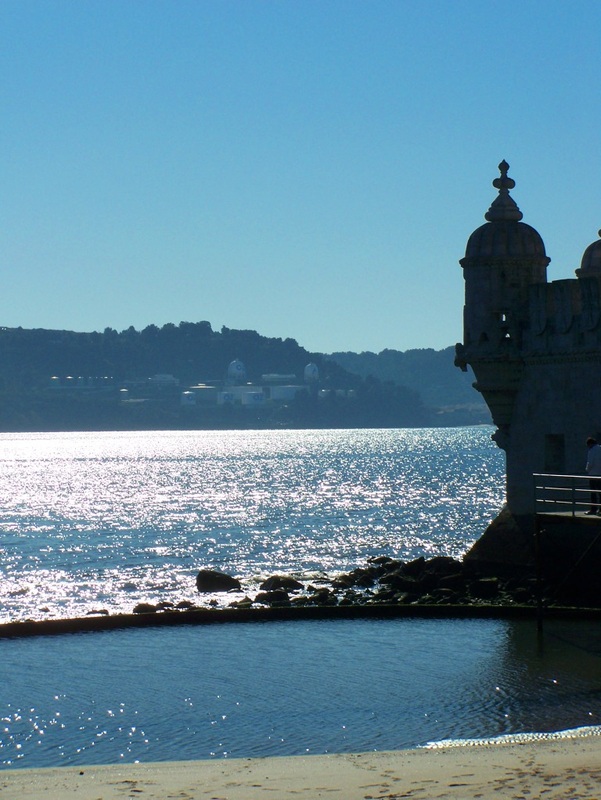
 RSS Feed
RSS Feed